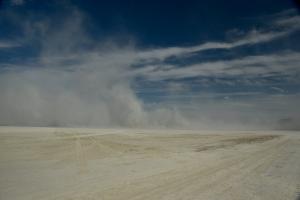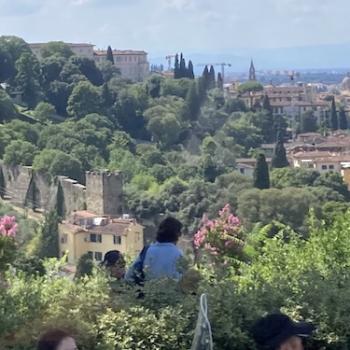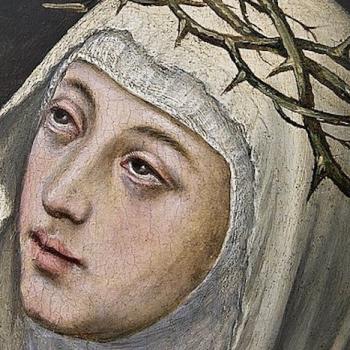
If the Genesis story is to be believed, the toughest part of being human is accepting limit as gift. That’s how I read the Eden story. God invited them to a long and slow journey toward theosis, the Greek word for growing into God’s image and likeness. But “long” and “slow” are the operative modalities. “Brief” and “immediate” seem so much more attractive to us. “If you eat this, you will be like God…”
The Trouble with Limit
My limitations are many. My body gets tired. When my native introversion makes demands on me, I get anxious and feel more absent than present. Daily tasks can make me feel fragmented, like there are 30 of me running around doing various things. Without supervision.
And I carry grief in my body. Mental health theorists are helping us understand the way that experiences remain a part of us, and not just mentally. Old traumas and losses get in our muscles and joints. They’re there in the rhythms of our heartbeats and the signals from our digestive tracts.
None of that, I’m sorry to say, feels like theosis. I don’t often experience limit as gift. I’m with Adam and Eve here: is there a fruit or a pill that could pull out the stops? Something to take me on a less circuitous path to the end of the day when God walks with us in the evening-cooled garden?
Nicholas of Cusa’s Conjectures
Nicholas of Cusa (d. 1464), born in eastern Germany at the dawn of the Renaissance, offers me some wisdom in moments when my human limits seem most ungiftlike.
Nicholas is one of those rare sorts who can plunge deeply into theological and philosophical mysteries and emerge nearly every time with something helpful to say. And oh my does he plunge deeply. He gets curious about the great structures of the universe, and is constantly drawing diagrams that—for him at least!—answer great questions. Nicholas is something like a da Vinci a couple of generations before da Vinci. Europe in those days was ripe with the feeling that all things were about to burst forth and reveal the truths we’ve only ever half-known. Soon humans will be flying—or so Leonardo assumed.
Nicholas doesn’t think, actually, that humans can understand all things. In fact, that’s his central teaching about human limit. “Every human affirmation about what is true is a conjecture.” He does think, though, that these conjectures can be revelatory, and that revelations can bring peace to a troubled soul.
I’m the sort of troubled soul who finds conjectures about the structures of existence to be comforting. You may not be, in which case this particular blogpost may not be for you. Please consider coming back later this week, or scrolling through my column for something different.
Numbering the Many Things
If you’re still here, you’ve been warned.
Nicholas offers me some of that deep help in my moments of acute limit-awareness.
We work in multiplicities he says. We live with large numbers. That’s what I’m experiencing when I’m feeling pulled in various directions at once. Exhaustion and frustration are experiences of number: there is just too much. Grief too is about number. I am no longer whole; part of me is irretrievably lost.
The key thing to hold in mind for our contemplations is that all that multiplicity is itself sharing in a divine unity. “In the mind of the Creator number is the first exemplar of things.”
Number functions as a verb as much as a noun for Nicholas: “to number” is something humans and other rational beings like angels get to do. When we count things, we are sharing in the act of numbering. When we order various items, like my daughter did recently with her Halloween candy, we are numbering. We are also numbering when we notice all the things on our to-do list that are left undone. To be aware of multiplicity is to exist as companions of number. And numbering a gift from God.
The God of Number
In fact, numbering is not only a gift from God, it’s a gift of God. That is to say, God is number-y. God, Nicholas says, is an absolute unity. God is also Trinity, but that doesn’t mean God is basically three. It means instead that God is a simple Oneness (“Father”) that generates an equal Other (“Son”) without compromising that eternal Unity (“Spirit”).
In other words, God is the total wholeness of all existence that is not threatened by fragmentation. It is a “characteristic,” you might say, of the Triune God to be One Whole. It is another characteristic of that same God to move out from that Wholeness into Difference. A third characteristic of God is to be an unbreakable and even joyful Union of Wholeness and Difference. God just is all that numbering in being One.
Limit as gift
What does any of that mean for my adventures in multiplicity? It guides me to see that the difficult many-ness of being human is patterned on a divine embrace of all number. Exhaustion and grief and all the rest: I’m not alone there. There’s a path Godward in it. Nicholas helps me see that God’s got me, through and beyond all that numbering. He helps me see limit as gift.
It’s not exactly “counting blessings.” It’s “count limitations as blessings.”
Limit is an invitation to Godlikeness. This is the original blessing that gets twisted into the origin of all sin. We exist in the land of multiplicity. That’s painful and hard. And… it is also to exist within a gift of “numbering things.”
When we find a moment of rest from the fragmentation, we get to contemplate the God in whom all multiplicity comes to rest. And then we come to see even—especially— our limitations as an invitation to share in the abundance of God’s simplicity.










